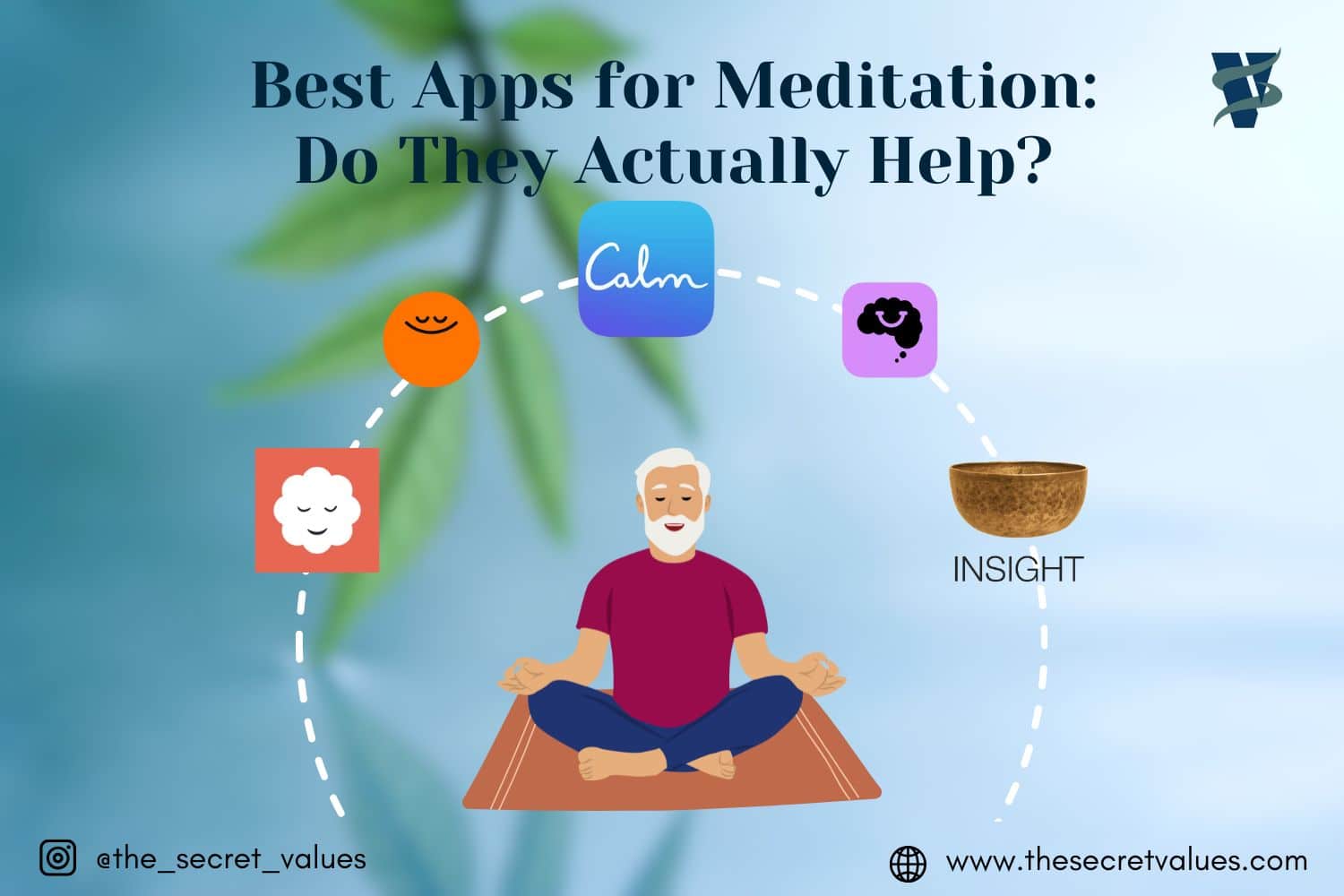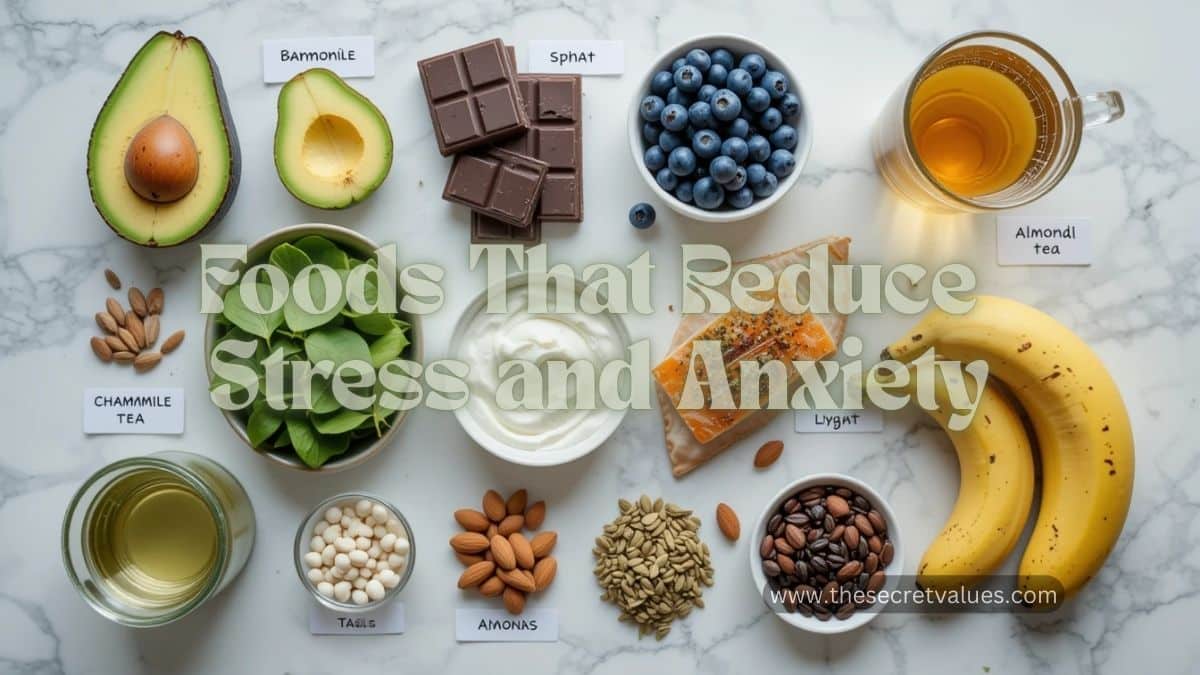In an age of fast-paced life where stress can be found at every corner, meditation had become a potent factor for heading over the way of calmness and clarity. However, beginning and sustaining a meditation practice can feel daunting. The tech is where Best Apps for Meditation comes to our rescue.
Let’s examine how these apps work, the benefits they claim to provide, and whether they really make a difference in taming stress. Spoiler alert: By the end, you might be inspired to download
Why Meditation Matters in the Modern World
Modern life is often a blur of obligations, due dates, and alerts, so the prevalence of anxiety and burnout is not surprising. One method to stop, take a breath, and reset is through meditation. Science supports this practice, demonstrating that meditation can lower stress, increase focus, and improve general wellbeing.
However, what if you lack the time or means to attend in-person classes? Meditation apps can help.
What Are Meditation Apps?
Meditation apps are beautiful tools that bring mindfulness to your fingertips, making it easy for everyone to practice, no matter how busy or experienced you get. These apps offer a variety of guided sessions to help you find your Calm, along with handy timers that let you set your own meditation lengths. Plus, they include relaxing soundscapes that help create a peaceful atmosphere while you meditate. With their friendly designs and helpful resources, these apps make it simple and enjoyable to take a moment to discover the benefits of meditation wherever you are!
How Meditation Apps Work
- Guided Practices: Step-by-step instructions that make it easy for beginners.
- Customization: Many apps allow you to choose sessions based on your mood or goals.
- Convenience: Meditate anytime, anywhere—at home, on a break, or during a commute.
Benefits of Using Meditation Apps
Accessibility for All
There is something for everyone with meditation apps, regardless of your level of experience. You can start with short sessions and build your practice over time.
Affordable Options
Many of the best meditation apps come with free versions or trials. You don’t need to break the bank to enjoy their benefits. Apps like Insight Timer even offer thousands of meditations for stress for free.
A wide Variety of Techniques
These apps cover a broad spectrum of practices, from mindfulness and body scans to sleep meditations. This variety keeps things interesting and ensures you’ll find something that works for you.
Best Apps for Meditation: Top Picks
Consider your goals when choosing a meditation app that is right for you. Here’s a roundup of the Best Apps for Meditation various needs.
1 Calm – For All-in-One Meditation

Calm is a popular app with guided meditations, sleep stories, and relaxation techniques—breathing exercises.
- Features:
- Sessions tailored to stress management, focus, and sleep.
- Celebrity-narrated stories to help you unwind.
- Why It’s Great:
- Calm’s comprehensive approach makes it a favorite for beginners and seasoned meditators.
2 Headspace – Best for Beginners

If you’re starting, Headspace provides a gentle introduction to mindfulness.
- Features:
- Daily meditations that focus on building consistency.
- Playful animations explaining complex ideas.
- Why It’s Great:
- Its user-friendly interface and step-by-step guidance are ideal for newbies.
3 Insight Timer – The Best Meditation App Free

Are you looking for quality without a price tag? Insight Timer has you covered.
- Features:
- Over 100,000 free meditations, including sessions specifically for stress relief.
- Community features to connect with like-minded users.
- Why It’s Great:
- Insight Timer is perfect if you want a variety of meditations for stress at no cost.
4 MyLife – For Personalized Meditation

Formerly known as Stop, Breathe & Think, MyLife focuses on tailoring sessions to your emotions.
- Features:
- Mood check-ins to recommend meditations that suit your current state.
- Tools to track your progress over time.
- Why It’s Great:
- This app understands that no two days are the same and adjusts accordingly.
How Meditation Apps Help with Stress
Meditation apps excel in providing targeted solutions for managing stress.
- Guided Meditations for Stress Relief: Apps like Calm and Insight Timer offer sessions to lower anxiety and promote relaxation.
- Mindfulness on the Go: With just a few taps, you can access a 5-minute stress-buster anytime life feels overwhelming.
Scientific Backing
Research shows that using an app to practice mindfulness can lower levels of cortisol (the stress hormone), improve sleep quality and increase resilience to emotional stress.
Limitations of Meditation Apps
While meditation apps are incredibly useful, they’re not perfect.
Lack of Personal Connection
Unlike in-person classes, apps can’t provide real-time feedback or adjust to your unique needs.
Over-Reliance on Technology
It’s easy to become dependent on the app instead of developing independent mindfulness skills.
Are Meditation Apps Worth It?
Of course! The advantages greatly exceed the disadvantages for the majority of people. Making meditation a regular practice can be done affordably, conveniently, and effectively with apps. But for the best effects, strike a balance by combining offline mindfulness exercises with app-based sessions.
Conclusion
Meditation apps are transforming how we approach mental wellbeing. There is a meditation app for everyone, ranging from the most excellent free options like Insight Timer to the more expensive ones like Calm. hey use tangible and effective techniques for reducing stress, improving focus, and living a healthier life.
So, if you’re wondering whether they help, the answer is a resounding yes! Give one a try today and see the difference it makes in your journey toward inner peace.
FAQs
1. What are the best free meditation apps?
Insight Timer and MyLife offer extensive free libraries of guided meditations.
2. How often should I meditate using an app?
Ten minutes a day to begin, then progressively extend as you feel comfortable.
3. Can meditation apps replace traditional practices?
While they’re excellent tools, nothing beats the depth of in-person guidance.
4. Are meditation apps suitable for kids?
Yes, apps like Headspace have dedicated sessions for children.
5. Which app is best for managing stress?
Calm and Insight Timer stand out for their targeted meditations for stress.
Please don’t forget to leave a review.








4 thoughts on “Best Apps for Meditation: Do They Actually Help?”